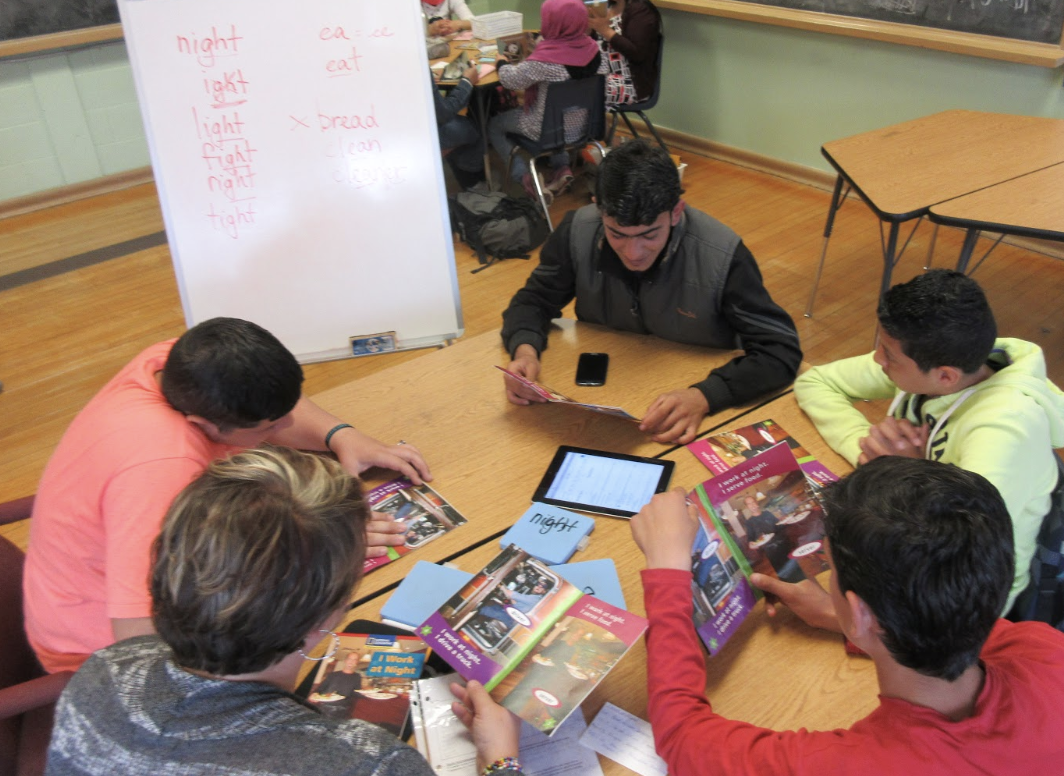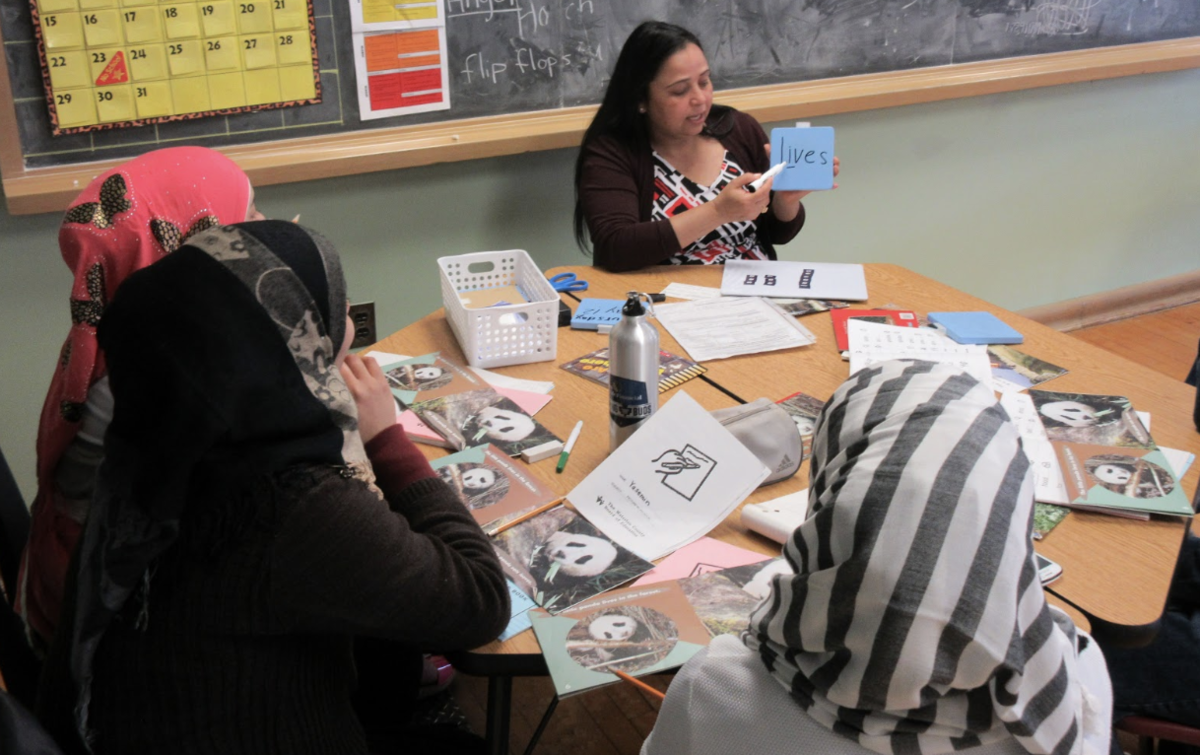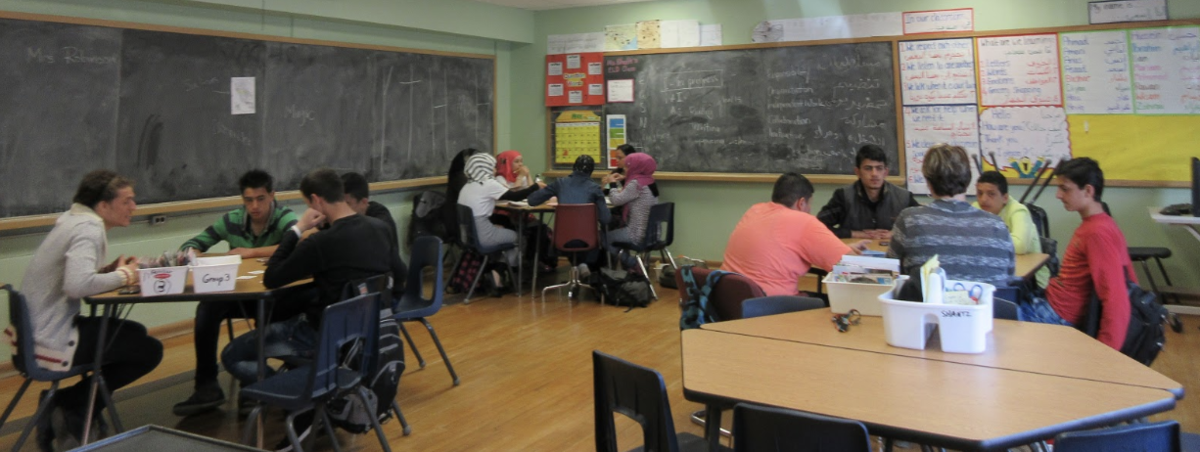
We collect basic website visitor information on this website and store it in cookies. We also utilize Google Analytics to track page view information to assist us in improving our website.

By Lara Shantz, WRDSB
Small group instruction (SGI) can be highly effective for all learners in a wide range of contexts but I have come to believe it is an essential component of the effective instruction of English language learners.
Let me begin by highlighting the important difference between small group WORK and small group INSTRUCTION. Small group instruction (SGI) means there is an educator (teacher, educational assistant, peer tutor, classroom volunteer, etc), with a small group of students, guiding the instruction and interaction. Small group work is still very beneficial but it is not the same thing.

Small group instruction lets you interact with students most effectively in their zones of proximal development (Vygotsky) where you can teach, assess, model, guide, evaluate, redirect, reinforce, and adapt as needed.
One of the long-standing premises of language acquisition, established by Dr. Steven Krashen, is that ELLs need comprehensible input (CI). They “learn a new language best when they receive input that is just a bit more difficult than they can easily understand.” What Is Comprehensible Input for ELL Students? In a whole class setting, with a wide range of English proficiency levels, what better way to make the content ‘comprehensible’ to your students learning English, than to meet them where they are at in a small group setting?
Alternatively, Merril Swain produced the hypothesis of comprehensible output (CO) - that ELLs also need opportunity to try to use the new language to communicate meaning,despite gaps in their vocabulary, and to receive feedback. (Comprehensible output hypothesis)
Although Krashen disagrees that CO is necessary for new language acquisition (Comprehensible Output), I would argue that when ELLs cannot easily rely on literacy to build vocabulary and understanding of a new language, having opportunity orally to produce and receive instant feedback is highly beneficial! In the insightful words of one of my own students, when asked what she liked most about SGI, Idman stated,
Another one of my students, Haithm, shared that in small groups,
Small group instruction has accelerated these students’ progress by providing optimal learning conditions that could not be achieved through whole class instruction.

At Eastwood CI, several years ago, we made sweeping changes to our ELD program in order to employ early literacy instruction in a small group format. We decided to change everything at once so that we could learn and adapt as we went. As we approached the end of our first ‘wild-ride’ semester, and were preparing for our first round of culminating evaluations, a colleague declared,
We all felt similarly. Our clarity was a direct result of small group instruction as we had daily opportunities to interact with groups of 4-5 students.

We could not help but know every student’s voice, be familiar with the range of their vocabulary, understand their skills as learners, and experience their attitudes and perspectives. Additionally, through ongoing observations and conversations, each of us could provide direct instruction and targeted feedback in real time in order to help our students grow their reading, and writing proficiency levels.
Another significant benefit of small group instruction, although it hadn’t occurred to us beforehand, was that our students’ oral proficiency and confidence to ‘try in English’ grew significantly! Having opportunity in every English class to converse with a teacher and small group of peers has been so productive for our students’ oral proficiency, and could not possibly be replicated in a whole class setting.
Finally, as so many of our ELLs have experienced trauma, small group instruction has helped us immensely in building community with our students. Being in a small group has allowed us to really know our students, to build trust with them, to laugh with them and sometimes, to cry with them, to foster their sense of safety and belonging. Small group interaction has enabled many of our students to settle, and to heal, and to grow more fully into themselves in their brand new context. It has been very rich and rewarding for me as a teacher as well.
One of my favourite concepts that I have learned about over the past five years is “vicarious resilience”. Through close proximity and relationship to students who have overcome significant barriers, challenges, and traumatic events, I have been inspired to hope, and to persevere, and to be a force for good in the world. It is my good fortune to be a teacher of English language learners.
I confidently recommend that you try small group instruction as soon as you can, in any small way that you can, so that you can experience it for yourself. SGI will most definitely help you to:
It will also reinvigorate your teaching, and remind you why you love working with English language learners so much!


